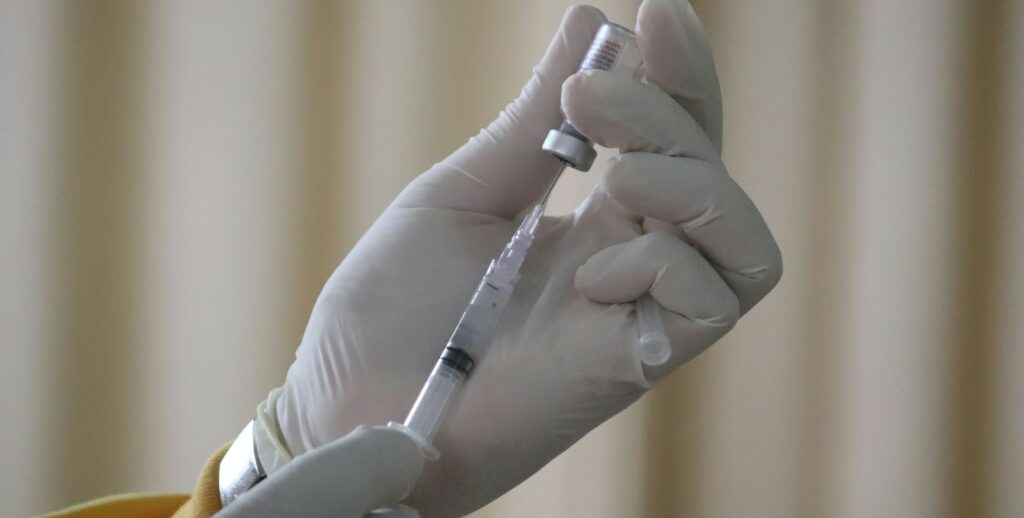Today, we’re focusing on a condition that affects millions worldwide: Herpes.
Herpes, known for symptoms such as sores, blisters, rashes, and fever, can also present less common symptoms that most people wouldn’t associate with the infection. One such symptom is leg pain.
In this blog, we’ll delve deeper into the common symptoms of Herpes and the often-overlooked symptom of leg pain. By understanding these symptoms, you can better manage your health and seek appropriate medical advice if needed.
So, let’s get started.
Understanding Herpes
Herpes is a sexually transmitted infection (STI) that can be caused by two types of viruses: Herpes Simplex Virus Type 1 (HSV-1) and Herpes Simplex Virus Type 2 (HSV-2).
While HSV-1 is primarily associated with Oral Herpes, leading to cold sores and blisters around the mouth, our focus today is on HSV-2, which is often linked with Genital Herpes infections.
HSV-2 is a sexually transmitted infection that causes genital sores, but it can also cause symptoms in other parts of the body, such as the legs.
The virus is notorious for its latency. Latency means an infection can lie dormant in the body after the initial infection. Specifically, HSV-2 sets up residence in the peripheral sensory ganglia – clusters of nerve cells near the spinal cord.
What makes HSV-2 particularly challenging is its lifelong persistence in the host. This means that if you have Herpes type 2, you will always have it. After the first outbreak, the virus can reactivate and cause new outbreaks of sores and other symptoms. These outbreaks can be triggered by factors such as stress, illness, and changes in the immune system.
Herpes and leg pain
Let’s turn our attention to a symptom of Herpes that is often overlooked: leg pain.
This leg discomfort caused by the virus, known as radiculopathy, is a neurological condition that can occur as a result of an HSV 2 infection.
Radiculopathy is typically associated with the lumbar or sacral nerve roots located in the lower part of the spine.
These nerves can become irritated when the Herpes virus reactivates, leading to recurrent episodes of pain. It’s important to note that this pain is not a constant presence but tends to come and go, usually in sync with recurrent outbreaks.
The pain will be felt differently from one person to another. It depends where the virus has made its “nest”, the place where it lies dormant. The pain may migrate from one place or another, and may worsen before then receding. The nerves in the genital area which the virus uses in an outbreak also service our legs, so we can feel Herpes pain anywhere from the buttocks to the tip of the foot. A person with Herpes leg pain may even complain that they feel the leg is weak. Typically, things will return to normal after the herpes outbreak.
Understanding the person’s pattern and progression of Herpes leg pain can help individuals recognise this symptom and seek appropriate medical advice.
Treatment options
Antiviral medications
These are often the first line of treatment for managing Herpes symptoms, including leg pain. Antiviral medications can help reduce the severity and frequency of outbreaks, thereby alleviating associated leg pain.
Pain relief medications
Over-the-counter pain relievers can be used to manage the pain associated with Herpes. Nonsteroidal anti-inflammatory drugs (NSAIDs) like ibuprofen can help reduce inflammation and relieve pain.
Physical therapy and other medical approaches
In some cases, physical therapy can help manage the leg pain caused by Herpes. Exercises and stretches can strengthen the muscles around the affected nerves, reducing pain and improving mobility.
It’s important to note that leg pain caused by Herpes usually subsides with antiviral treatment or over time. However, if you’re experiencing persistent or severe pain, you should seek medical advice. There are several techniques for those unusually persistent and severe cases such as nerve blocks.
Final thoughts
Understanding the symptoms of Herpes and seeking appropriate treatment is crucial in managing your health effectively. At Better2Know, we’re committed to providing you with the knowledge and resources you need to take control of your sexual health.
If you’re experiencing any of the symptoms discussed in this blog, we encourage you to consider our range of STI testing products. Early detection is key in managing any health condition. Take the first step towards better health today with Better2Know. Stay informed and stay healthy.
This blog has been medically reviewed by Dr. Steve Chapman, 02/10/2024.





